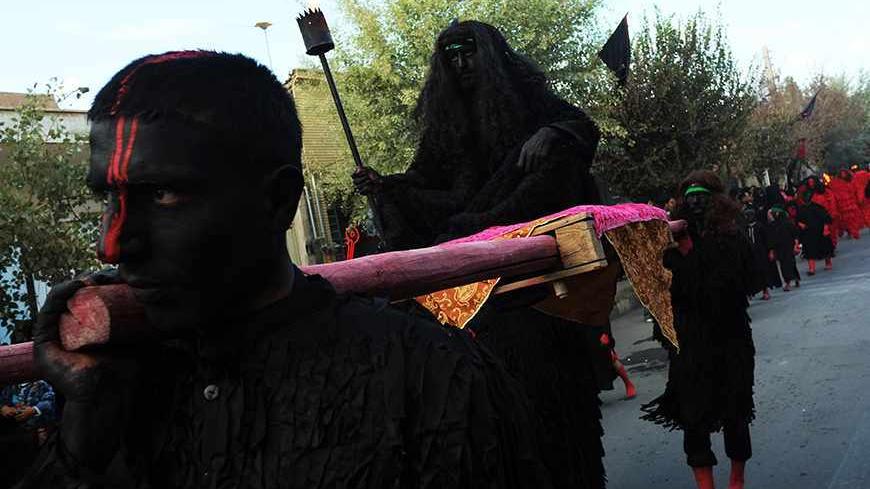TEHRAN, Iran — Black are the streets of Iran. Disheartened voices emanating from huge speakers can be heard wherever you go, and large groups of men and women line up in front of mourning centers, tears in their eyes and signs of sadness on their faces. “Is there anyone to help me?” cries the aza, or mourning, reader, quoting Imam Hussein, the Shiites' third imam and the son of Fatima, the daughter of the Prophet Muhammad. “Is there anyone to help the grandson of the holy prophet?” he continues, as cries get louder. These sounds create the soundtrack of Tehran and other Iranian cities during the days of Ashoura.
Despite its religious roots, Ashoura is not just an occasion commemorated by religious people in Iran; it’s a part of the Iranian collective conscience, something that is treated as cultural heritage, like commemorations of Nowruz, the Persian new year. The values of the historic incident behind Ashoura make it relevant to everyone’s thoughts and beliefs in Iran: Who doesn’t want freedom? Who is against the struggle for reform? Who can’t respect sacrifice?



